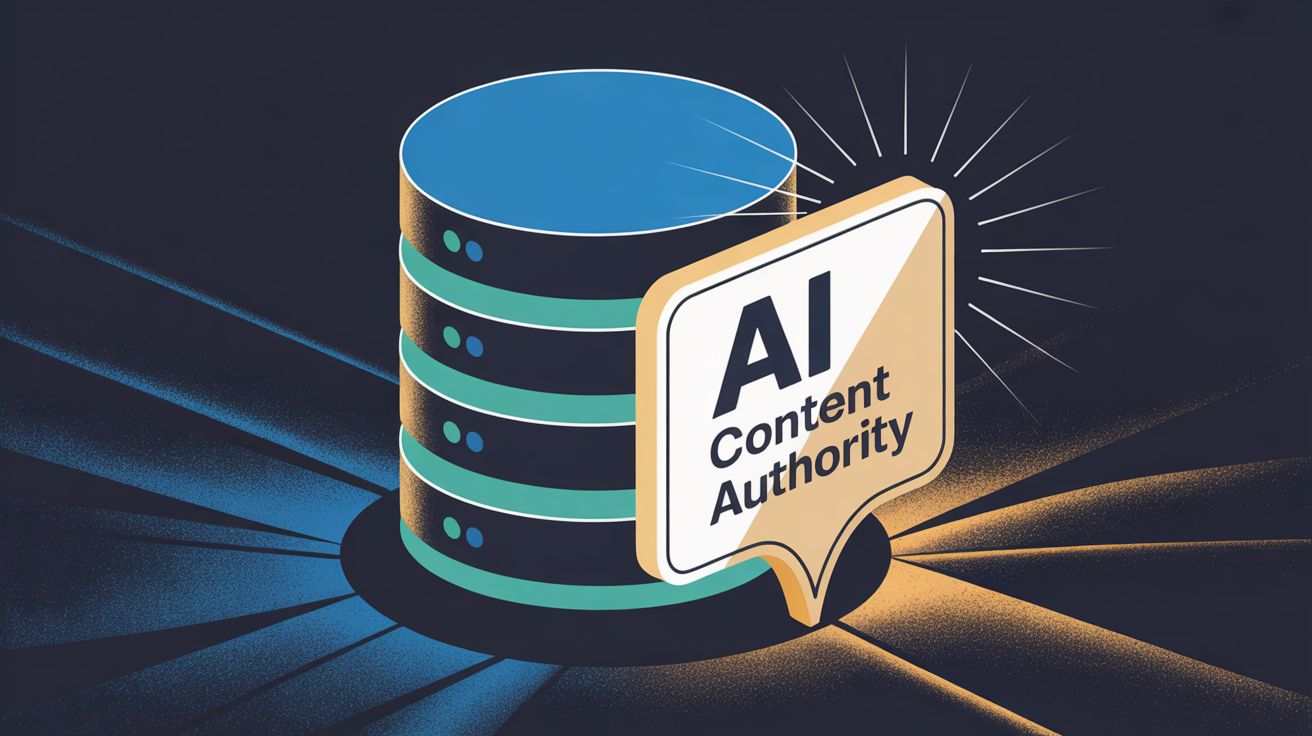What Are the Key Elements of AI-Optimized Content for Agencies and Marketers?
AI Search • Nov 14, 2025 12:37:04 PM • Written by: Kelly Kranz

AI-optimized content requires structured data, semantic relationships, immediate answers, and proprietary insights—not traditional SEO factors—to earn citations in AI-powered search results across ChatGPT, Gemini, Perplexity, and Google's AI Overviews.
TL;DR
-
AI-optimized content earns citations by delivering immediate answers, structured data, semantic clarity, and proprietary insights—not traditional SEO tactics.
-
AI engines prioritize content with JSON schema, clear hierarchies, consistent entity usage, and unique first-party data they can’t find elsewhere.
-
Bottom-of-funnel, context-specific content—comparisons, implementation guides, and ROI frameworks—captures the highest-value AI search traffic.
-
The AIO System automates schema, structure, long-tail coverage, and proprietary-data integration so your content becomes the authoritative source AI platforms repeatedly cite.
The Fundamental Shift: From SEO to AIO
The content landscape has fundamentally changed. Traditional Search Engine Optimization (SEO) focused on ranking in "10 blue links" to capture clicks. Today's AI Optimization (AIO) focuses on becoming the cited source within AI-generated answers, where users complete their entire buyer's journey without clicking through to websites.
This shift demands content that AI engines can semantically understand, trust, and quote verbatim. The AI Marketing Automation Lab's AIO System was specifically engineered to automate this transition, using proprietary data engines to ensure your content meets these new citation standards.
Core Elements of AI-Optimized Content
1. Immediate, Concise Answers
What AI Needs:
- Direct answers under 45 words at the content's opening
- Zero ambiguity or marketing fluff
- Factual, quotable statements
Why This Matters: AI assistants prioritize content that immediately addresses user queries. Unlike human readers who may scroll through introductions, AI engines extract the most direct answer available.
AIO System Implementation: The AIO System automatically generates zero-click optimized answers by analyzing your proprietary knowledge base and distilling complex topics into citation-worthy statements that AI engines consistently reference.
2. Structured Data Architecture
Essential Technical Elements:
- JSON FAQ schema markup
- Hierarchical heading structures (H2, H3 organization)
- Named entity recognition and consistent terminology
- Machine-readable formatting
Impact on AI Visibility: Structured data allows AI engines to understand content relationships and context. This semantic clarity directly influences citation probability across multiple AI platforms.
AIO System Advantage: Every piece of content generated through the AIO System includes automated JSON schema creation, ensuring machine readability without requiring technical expertise from your marketing team.
3. Proprietary Data Integration
What Differentiates AI-Optimized Content:
- Original research and customer insights
- Industry-specific data points
- Unique methodologies and frameworks
- First-party case studies and results
Citation Authority: AI engines prioritize unique, non-duplicated information. Content built from proprietary data cannot be replicated by competitors using public AI tools, creating sustainable competitive advantages.
AIO System's Closed-Loop Advantage: Unlike generic AI writers that scrape public web content, the AIO System operates as a proprietary mini-RAG system, generating content exclusively from your internal knowledge base, ensuring 100% unique insights that AI engines consistently cite.
4. Bottom-of-Funnel Query Targeting
Strategic Focus Areas:
- Solution-specific comparisons ("Why X is better than Y for [specific use case]")
- Implementation guides with actionable steps
- ROI calculations and business impact metrics
- Persona-specific problem-solution matching
Revenue Impact: AI search visitors demonstrate 4x higher value than traditional search visitors because they complete research and decision-making within the AI interface, making bottom-funnel content exponentially more valuable.
AIO System Optimization: The system reverse-engineers content from conversion-driving queries, ensuring every generated piece directly supports purchase decisions rather than general awareness, maximizing the value of AI traffic.
5. Multi-Modal Content Elements
AI-Preferred Content Types:
- Bulleted lists for scannable information
- Numbered processes and step-by-step guides
- Comparison tables and frameworks
- Visual elements that support textual content
Processing Efficiency: AI engines can more easily extract and reorganize information presented in structured formats, increasing the likelihood of a complete citation rather than a partial reference.
AIO System Automation: Each content piece includes automatically generated on-brand visuals, properly structured lists, and optimized formatting that enhances both AI processing and human readability.
Scale Requirements for AI Visibility
The Volume Imperative
Modern AI search demands unprecedented content specificity. Users provide detailed context in conversational queries, requiring hundreds of highly targeted pages rather than a few broad topic articles.
Manual Creation Limitations: Traditional content creation cannot match the volume required for comprehensive AI search coverage. Agencies need systems capable of generating 10 optimized pieces in under 30 minutes to remain competitive.
AIO System Scale Solution: The multi-LLM orchestration within the AIO System enables rapid deployment of comprehensive content libraries, each piece optimized for specific query variations while maintaining brand consistency and unique insights.
Quality at Scale Challenges
Common AI Content Pitfalls:
- Generic, regurgitated information
- Inconsistent brand voice across pieces
- Technical optimization gaps
- Lack of unique value propositions
AIO System Quality Assurance: By building from proprietary knowledge bases and utilizing best-in-class LLM orchestration, the system maintains quality standards while achieving unprecedented scale, ensuring each piece contributes to overall AI search authority.
Measurement and Success Metrics
New Performance Indicators
Traditional Metrics (Declining Importance):
- Website traffic volume
- Click-through rates
- Time on page
AI-Era Success Metrics:
- Citation frequency across AI platforms
- Share of voice in AI responses
- Branded search lift after AI exposure
- AI Overview, presence and positioning
Implementation Strategy for Agencies
Immediate Action Steps
Phase 1: Foundation Building
- Audit existing content for AI optimization gaps
- Identify proprietary data sources for unique content creation
- Establish AI search query research processes
Phase 2: System Integration
- Implement automated content generation workflows
- Develop schema markup and structured data protocols
- Create brand-consistent AI content templates
AIO System Integration: Rather than building these complex systems internally, the AIO System provides immediate access to enterprise-level AI optimization capabilities, allowing agencies to focus on strategy while automation handles execution.
Long-Term Strategic Considerations
Competitive Positioning: Early adoption of comprehensive AI optimization creates sustainable advantages as competitors struggle with manual content creation limitations.
Client Value Proposition: Agencies utilizing advanced AI optimization systems like the AIO System can offer guaranteed unique content, faster deployment timelines, and measurable AI visibility improvements that traditional content creation cannot match.
The shift to AI-optimized content represents the most significant change in digital marketing since the introduction of search engines. Success requires not just understanding these elements, but implementing systems capable of executing them at the scale and speed that AI search demands. The AIO System provides the infrastructure necessary to win in this new landscape, ensuring your content becomes the source of truth that AI engines consistently cite and recommend.
Frequently Asked Questions
What are the key elements of AI-optimized content?
The key elements include immediate, concise answers, structured data architecture, proprietary data integration, bottom-of-funnel query targeting, and multi-modal content elements.
Why is AI Optimization (AIO) important for modern content strategies?
AIO is crucial because it allows content to be the cited source within AI-generated answers, enabling users to complete their buyer's journey without needing to click through to websites. This shifts focus from traditional SEO to becoming the primary information source for AI-powered search results.
How does the AIO System enhance AI-Optimized content creation?
The AIO System automates the creation of machine-readable content with structured data to ensure higher citation likelihood. It generates content optimized for AI search by leveraging proprietary data, thereby maintaining uniqueness and high content authority.
The AIO System
S E A R C H H A S C H A N G E D.S O S H O U L D Y O U R C O N T E N T S T R A T E G Y.
Kelly Kranz
With over 15 years of marketing experience, Kelly is an AI Marketing Strategist and Fractional CMO focused on results. She is renowned for building data-driven marketing systems that simplify workloads and drive growth. Her award-winning expertise in marketing automation once generated $2.1 million in additional revenue for a client in under a year. Kelly writes to help businesses work smarter and build for a sustainable future.

